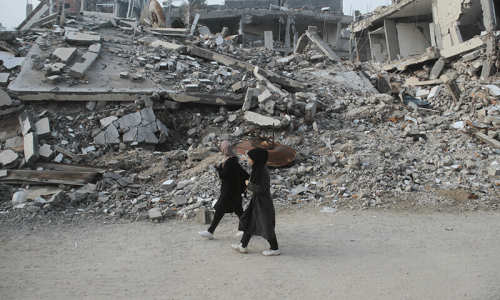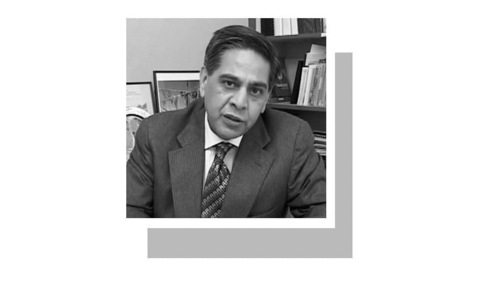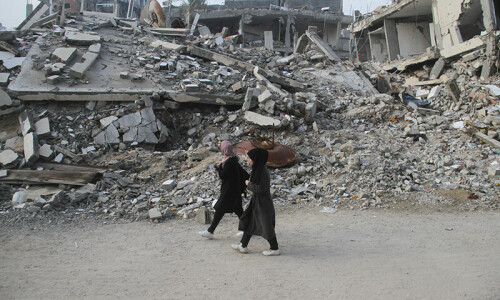ISLAMABAD: Though Pakistan has made remarkable progress on curbing poliovirus the dream to eradicate the crippling disease cannot come true as long as there is the accessibility issue in Afghanistan.
This was stated by National Emergency Operation Centre for Polio Coordinator Dr Rana Mohammad Safdar while talking to Dawn.
He said the issue was taken up during the technical advisory group meeting held in Islamabad in the first week of this month and the participants were concerned over the situation in Afghanistan.
As long as accessibility issue is not resolved in neighbouring country, poliovirus will continue travelling to Pakistan, says Dr Safdar
“As the participants first visited Afghanistan and then came to Pakistan, they were well aware that there is the issue of accessibility in a number of provinces in Afghanistan. Though Pakistan has addressed issues of inaccessibility, it cannot eradicate the virus unless the disease is controlled in the neighouring country. The virus is continuously being transported from Afghanistan to Pakistan,” he said.
A tracking policy has been introduced for people who come from Afghanistan carrying the virus. They will be vaccinated again and again to ensure eradication of the virus.
Dr Safdar said as Pakistan and Afghanistan had been declared one block, unless polio was eradicated in Afghanistan Pakistan cannot be declared a polio free country.
In reply to a question, he said though three cases were reported in Pakistan during the current year, they were from one district and localised in a radius of five kilometres.
“Last year, till June 15, three cases had been reported but they were from different provinces. It shows the virus has been contained to a small area,” he said.
An official of the Ministry of National Health Services on the condition of anonymity said though children were vaccinated during the polio campaigns the system of routine immunisation was very weak in the country.
“A number of political appointments have been made in the routine immunisation programme due to which no progress has been observed. In Balochistan, 65pc to 70pc children are not vaccinated which shows that they are more vulnerable to diseases such as polio. Last year, three cases were registered in Lodhran, Killa Abdullah and Diamer and they all were not vaccinated during the routine immunisation. Same is the case in the current year as all three children were not vaccinated,” he said.
Dr Safdar also agreed that immunity in children cannot be increased unless they are vaccinated during the immunisation campaigns.
“We have prepared a National Emergency Action Plan (NEAP) to address the issue. As per plan, we have decided to increase the intervals between polio campaigns. In the past, we used to hold the campaign every month but now the drives are held after six months as two weeks will be spent in vaccinating the missed children,” he said.
As many as 306 polio cases were reported in Pakistan in 2014 and in 2015 the number dropped to 54. In 2016, there were 20 cases while 2017 saw only eight cases.
Published in Dawn, June 16th, 2018













































Dear visitor, the comments section is undergoing an overhaul and will return soon.